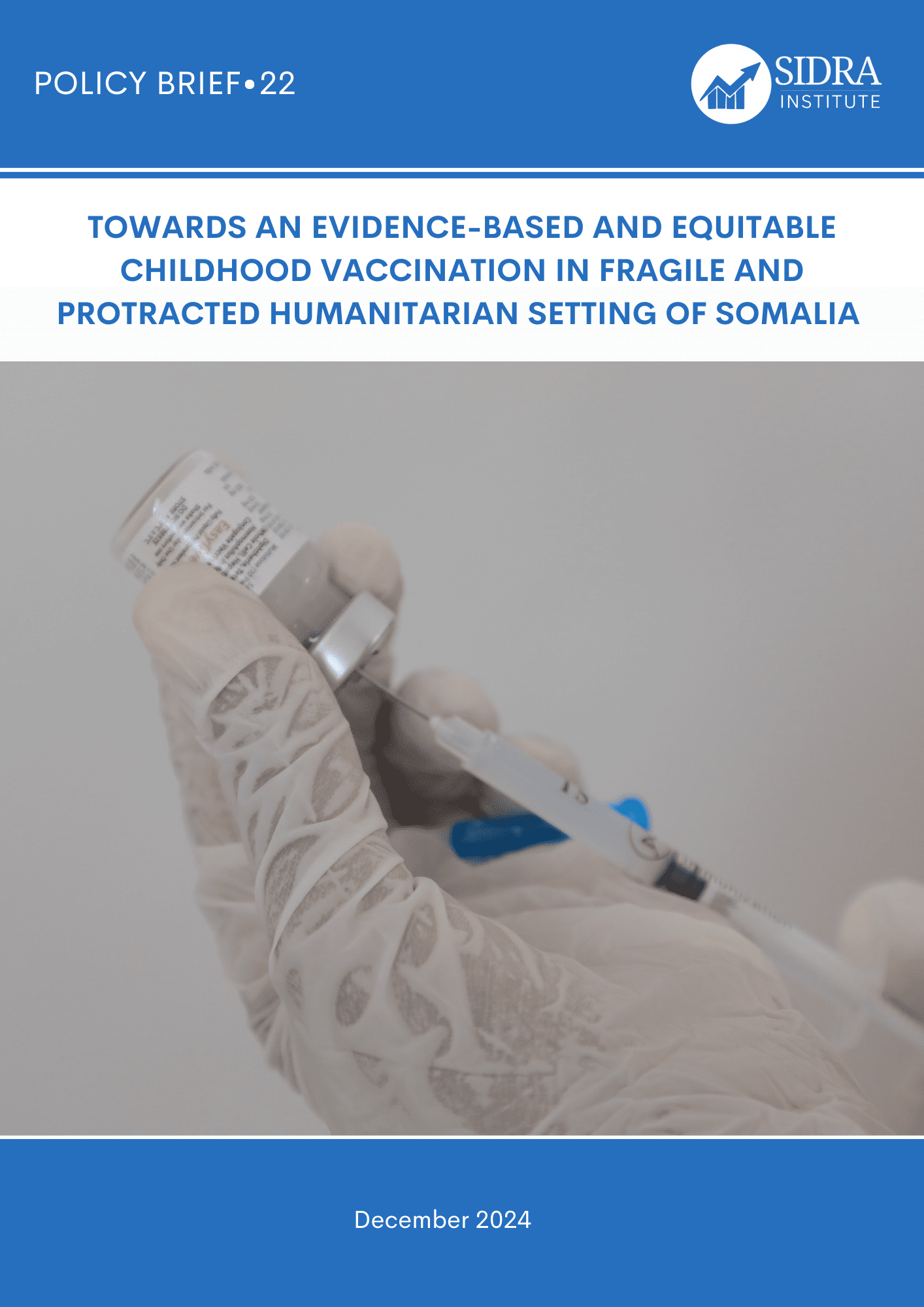Towards an evidence-based and equitable childhood vaccination in fragile and protracted humanitarian setting of Somalia
13 €
Somalia is classified as the most extremely fragile country in the world (OECD, 2022). According to OECD (2016), “fragility is the combination of exposure to risk and insufficient coping capacities of the state, system and/or communities to manage, absorb and mitigate those risks.” (OECD, 2016). A multitude of crisis, shocks and uncertainties such as persistent conflicts and violence, political deadlock, recurrent droughts and floods, and fragmented and weak state institutions have turned the country into one of the most challenging operating environments in the world and left it in dysfunctional state of fragility.
State coping capacities reflect the governance and strength of its institutions. Decades of conflict has left the state institutions with a fragmented and weak governance and decision-making structures and shortage of critical resources. The health system has particularly bore the brunt of the state collapse and suffered from fractured governance, low service availability, poor health infrastructure, severe shortage of health workers and limited reliable and quality health data.
Related products
-
Navigating Puntland’s Electoral Impasse: An Analysis of Stakeholder Perspectives
15 € -
Youth Radicalization in Somalia
21 € -
Breaking the Impasse: Effective Electoral Model for Somalia Elections 2020-21
15 € -
Promoting Citizen Engagement Through Decentralized Local Governance: The Potential for Grassroots Democracy in Puntland
12 €
We are a pioneering research and consultancy firm dedicated to providing evidence-based solutions to clients across diverse sectors.
Coaching Service
Head Office Address
London Fashion Center 89/93 Fonthilll Road London N4 3JH
Days Open
Monday - Friday 08 AM - 10 PM
